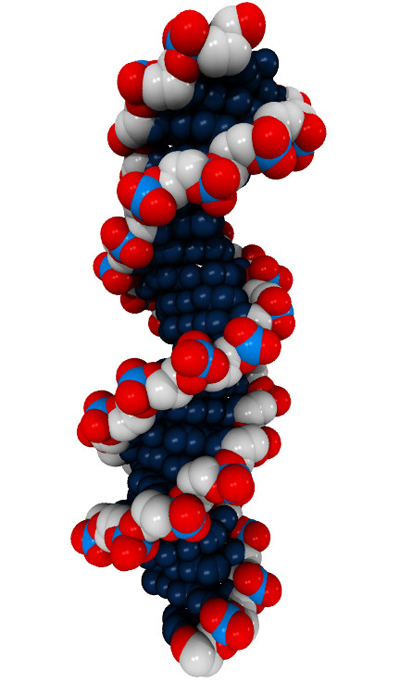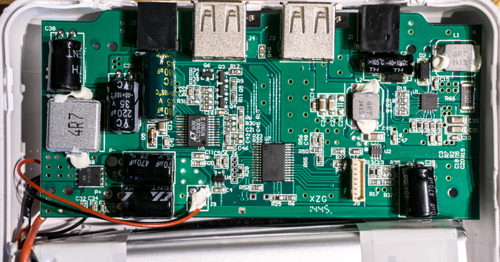Is science true? Understand article
Should we believe what science tells us? A philosopher of science comments on teachers’ responses to this challenging question.
As a science teacher, do your students sometimes put you on the spot – not just about the details of what you are teaching, but about the value of scientific knowledge itself? Compared to previous generations, people are now more sceptical about institutions and expert opinions in all fields of knowledge – young people perhaps even more so. And we can all think of examples where scientific advice has changed based on new evidence.
So how should educators respond to the question, ‘Is science true?’ Which responses support the validity of science – and which could undermine it?
Teachers’ responses in defence of science
In this article, we look at some responses used by actual science teachers in the classroom as they attempt to defend scientific knowledge against challenges from students, such as ‘Why should we believe what science tells us?’ These responses are followed by comments and suggestions from a philosopher of science to add an expert’s view on the issue.
Response 1: “Truth is relative: your truth isn’t my truth.”
This type of response is often tempting to use against challenges to any knowledge claims, not just in science. The aim is to sidestep the question of truth entirely – but does this work?
The problem with seeing truth as relative is that, without a notion of truth as something objective, it becomes impossible to understand how learning about the world around us is even possible. If what we hold to be true can only be true for us individually, could we ever agree or disagree with each other? I would always be right, and so would you – or rather, there would no longer be any ‘being right’.

vexworldwide/Shutterstock.com
Imagine two people are sitting in a room, which one says feels cold and the other thinks feels warm. This is understandable: one person may simply feel cold more easily than the other. But what if one person says that, based on a thermometer reading, the temperature of the room is 19 °C, and the other says that it is 22 °C? If they are both right, they would then have no common reference on which to base any decisions (for example, whether to turn the heating on or off). Having no disagreements sounds nice, but in reality, no one could rely on what anyone else said, and there would be no way of telling how things actually are.
There is one aspect of truth relativism that appeals to many people, because it seems to fulfil our wish to avoid claiming too much. This is even more so if we put the contrast in terms of ‘relative vs. absolute truth’ – after all, who wants to be an absolutist any more? But to say that there is a truth on a given matter is not to say that we know what the truth is. If we want to be modest in making knowledge claims, then we should just be very careful about the claims that we make, and the uncertainty associated with them. Denying that there can be objective truth does not express modesty about our knowledge: it just makes knowledge of the world impossible.
Response 2: “Science is about models – it’s not about reality.”

Once Crick and Watson had
built the first model of DNA
structure, the double-helical
form rapidly led to new
theories about DNA’s role in
heredity.
Enzymlogic/Flickr
It’s certainly true that science provides models of what the world is like. But it’s a misunderstanding to think that because science provides models, it’s not about reality.
Whenever we think about anything, we do so by means of a medium – whether this is words in a language or images that are drawn or imagined. Either way, we always need a means of representation. Scientific thought is no different: it provides models of reality that are meant to represent just those aspects that are under investigation.
Obviously, models cannot be reality itself: they are merely representations of it. Reality itself is what we bump our heads on or burn our fingers with. Given that scientific models and theories are representations, all that we can ever ask of them is to predict and explain phenomena as precisely as possible.
So is the criticism here that science uses bad models? Certainly, scientists argue over whether a model makes the right assumptions, uses the correct parameters, has included all the relevant features, and so on. Thus, the criticism cannot be of science itself, because science makes it its business to deal with such problems. Models can be tested and their results compared, leading to gradual refinements.
Response 3: “Scientific theories are just a way of fitting the data: all we have is observations.”
This is an interesting thought that has a long history. In the century when the geocentric view of our Solar System was being replaced by the heliocentric one, it was often useful (for reasons to do with society at the time) to say that all that mattered was ‘saving appearances’. In the book in which Copernicus put forward his heliocentric account, the preface warns readers not to assume any claims about reality from the descriptions of the Earth circling the Sun: the descriptions are merely there to account for the observations. And in more recent times, the ‘instrumental’ view of scientific theories – in which their only role is to make observable predictions – has been influential, although it is no longer very popular among philosophers of science.
In any case, in science as in everyday life, observations very rarely stand on their own, but are part of networks of related observations, generalisations and expectations – in other words, theories. And the beauty is that just as theories lead to predictions of new observations, so observations help to confirm or disconfirm theories. Both of these elements of science correct each other, and together they make scientific knowledge possible.
Response 4: “If science is just a theory, why does your mobile phone work?”
It is difficult to respond directly to the challenge that “science is just a theory”, as it’s not entirely clear what the complaint is. Science provides descriptions that allow us to explain what happens, and to make correct predictions. What more could be expected of these explanatory descriptions that we call theories?
What we call scientific knowledge are theories that are confirmed to the highest degree that it seems reasonable to demand. But certainty is not required throughout: within science we have many different degrees of acceptance – from theories that are extremely well confirmed, to models that have a more hypothetical status, or are even just speculative. Typically, scientists would only count the first category here as reliable knowledge.
Furthermore, most scientific theories are very complex, and they undergo stringent testing – not only from advocates, but also from opponents. It is because of these internal dynamics that we can regard science as a self-correcting enterprise. For this reason, it’s quite persuasive to point to the practical successes of science (in terms of the technology we use) to demonstrate that science is an integrated and robust system of knowledge.
What lies behind this success is that, in principle, every scientific knowledge claim can be questioned – and certainly will have been in the past. If a theory survives at all, there is likely to be a good deal of truth about it. Even old theories are rarely discarded in their entirety. While Newtonian physics was superseded by relativistic physics, the older theory continues to apply to objects within our ordinary experience, with degrees of deviation so tiny they are mostly undetectable. So there is discontinuity in scientific progress, but also continuity.

Larry Qian/Flickr
Resources
- Read a classic introduction to the philosophy of science, see:
- Chalmers A (2013) What is this Thing Called Science? 4th edition. Indianapolis, USA: Hackett Publishing Company. ISBN: 162466038X
- For a recent and accessible introduction to philosophy of science, see:
- Okasha S (2016) Philosophy of Science. A Very Short Introduction. 2nd edition. Oxford, UK: Oxford University Press. ISBN: 0198745583
- For a comprehensive and up-to-date online resource on philosophy, look for various articles under ‘science’ and ‘scientific’ in The Stanford Encyclopaedia of Philosophy.
Review
In this 21st century, the age of technology, is such an article necessary? Unfortunately, yes. Many European science curricula at secondary-school level do not pay much attention to the construction of scientific knowledge.
This very interesting article leads us to reflect on two crucial dimensions of science: the link to factual reality, and the search for reliable and testable patterns in our comprehension of the cosmos. After a discussion of the central ideas in this text, science teachers could involve their students in a semi-structured inquiry around a question from the recent history of science, as illustrated in the article.
Whatever approach science teachers take, I believe that this article will help them to consider the most important questions here: is the scientific endeavor well understood by science students in secondary education? Probably not. Can the misunderstanding of its goals and methods put a truly democratic and open society at risk? Definitely, yes.
Luis M Aires, biology teacher, Antonio Gedeao Secondary School, Portugal





